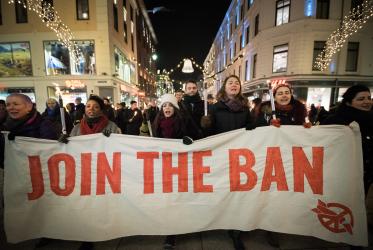“We deeply regret that Norway has not joined the treaty,” reads the appeal. “The threat of a catastrophic mass eradication using nuclear weapons was one of the most important reasons for more than 400 religious leaders to be brought together in Kyoto in Japan in 1970 for the first World Conference of Religions for Peace.”
During its 50-year existence, Religions for Peace has worked actively to prohibit the use of nuclear weapons. “As Norwegian representatives of Religions for Peace, we are deeply convinced that the existence and use of nuclear weapons is fundamentally in conflict with our religious values and ethical principles,” reads the appeal. “We can in the name of humanity not accept the use of nuclear weapons.”
As long as nuclear weapons exist, there is a danger that they may be used, notes the appeal.
“Therefore, we claim that Norwegian current support for the use of nuclear weapons that violate human dignity is unacceptable,” reads the text. “We see no decisive conflict between international law, moral principles, Norway’s membership in NATO, and the ratification of the Treaty on the Prohibition of Nuclear Weapons.”
The appeal further notes that annual expenses used on nuclear weapons globally are estimated to at least 100 billion US dollars. “More of our resources should be used for human development and protection of the creation, and not for investing in weapons that can eradicate the world’s human population,” reads the text.







